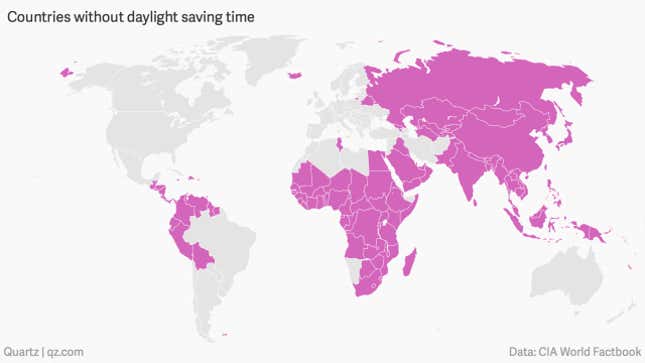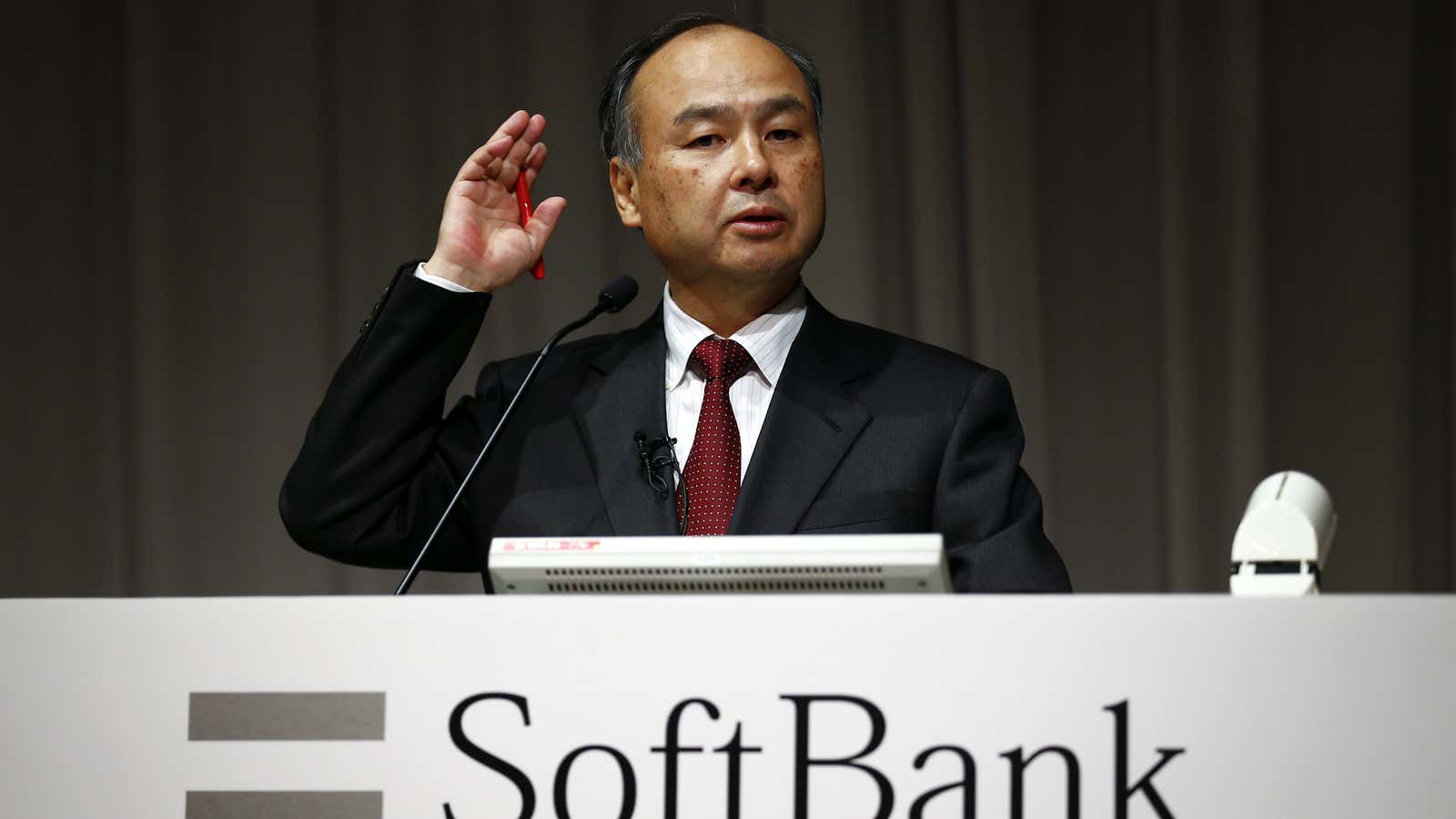Good morning, Quartz readers!
Was this newsletter forwarded to you? Sign up here. Forward to the friend who hogs all the popcorn.
Here’s what you need to know
SoftBank reported a $3.5 billion quarterly loss, and blamed Beijing. “It is a time of severe trials for China’s high-tech stocks,” said chief executive Masayoshi Son. “We are right in the middle of a storm.”
The US and Japan are now open to many vaccinated travelers. The resurrection of the London-New York corridor, one of the world’s busiest and most lucrative, is a huge relief to airlines.
Will Elon Musk sell Tesla shares because of a Twitter poll? A majority of respondents urged him to let go of 10% of his holdings, and the company’s stock price fell, but come on.
US lawmakers finally passed a $1 trillion infrastructure bill. It heads to president Joe Biden’s desk for a signature, and includes $550 billion in funding for transportation, broadband, and utilities projects.
Investigators are focusing on safety measures at the deadly Travis Scott concert. Eight people died in the crush, and Houston’s police chief said he warned the rapper about crowd control before the show.
Barack Obama is at COP26. The former US president is making a speech about climate progress at the event in Glasgow.
What to watch for
The sixth plenary session of China’s Communist Party starts today, a key meeting that usually takes place annually and involves the party’s most senior members. Led by president Xi Jinping in Beijing, the four-day, closed-door gathering of more than 370 committee members is one of China’s most important political events.
Here’s what to expect:
- A major resolution on the party’s achievements. It’s only the third resolution of its kind in CCP history, and is likely to reinforce Xi Jinping’s status.
- The meeting comes ahead of—and could sway—next year’s National Congress, when a big leadership reshuffle is expected.
- Regulatory and economic ideas floated during the meeting will likely inform new policies.
It’s unlikely the public will hear much from the secretive meeting until its end, set for Nov. 11. But for Xi, the meeting is more important than most, as it sets a roadmap to his expected third term.
Is daylight-saving time on its way out?

Economists, politicians, and the public are increasingly in agreement that daylight-saving time—when 1.6 billion people change their clocks by an hour—isn’t practical. And studies show it can even be harmful to the global economy.
40: Minutes of sleep most Americans lose when they turn clocks ahead an hour in the spring
$434 million: Losses in work productivity in the days after the spring time change
70: Countries that use daylight-saving time, complicating time coordination with the other 125
As logical as doing away with the time change may be, economist Allison Schrager is skeptical that the US anti-daylight-saving contingent has enough willpower to push back against its proponents (mainly retail lobbies) to change something that’s already the law of the land. Only time will tell.
How a carbon market would work
Many officials argue carbon markets could unlock billions in funding to accelerate the low-carbon economy, if everyone can agree on some highly technical and politically sensitive details.
Negotiators are hung up on what’s known as Article 6, which outlines two types of carbon markets:
1️⃣ The first type, which already exists, involves trade deals between governments that agree to buy and sell carbon credits (or allow private entities within one to sell credits to the government of the other).
2️⃣ The second kind would be a true global marketplace, regulated by the UN, where governments or companies could pitch or purchase credits via a supervisory board that would effectively act as an exchange.
Writing from COP26 in Glasgow, Tim McDonnell outlined how this market could work in our member-only Weekend Brief.
✦ Join free for seven days to get a full week of our membership emails, on us.
Handpicked Quartz
👶 What parents need to know about the coming metaverse
🍿 With movie theaters struggling, AMC is getting into the popcorn business
💉 A history of legal vaccine mandates show they are successful
🤦♀️ The pandemic barely dented the huge rise in carbon emissions since 1990
🚨 China is invoking a great American economist to warn against lagging productivity
👀 The complete, searchable list of people and companies at COP26
Surprising discoveries
Antarctica used to be on fire. Analyzing charcoal samples shows that the continent wasn’t spared from wildfires that plagued the rest of the globe 75 million years ago.
There’s a hand sign that saves lives. A teenager used a gesture popular on social media to indicate she was in danger, and a motorist called the cops.
Dwayne Johnson made a rubber-gun pledge. The actor said the fatal incident on the set of Rust is inspiring some changes at his own production company.
Heathrow travelers found frozen crates of fish at baggage claim instead of their luggage. They cod-n’t believe their bad luck.
A star system near ours has planets that orbit at right angles to each other. Astronomers don’t see that every day.
Our best wishes for a productive day. Send any news, comments, seafood souvenirs, and misbehaving planets to hi@qz.com. Get the most out of Quartz by downloading our iOS app and becoming a member. Today’s Daily Brief was brought to you by Hasit Shah, Tim McDonnell, Alexandra Ossola, Susan Howson, and Morgan Haefner.
